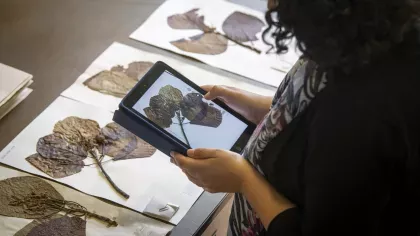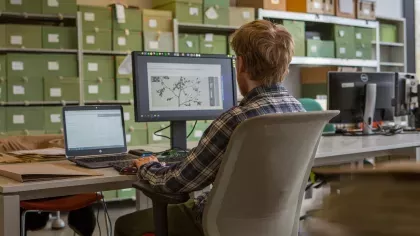12 July 2023
1 million plants and fungi digitised unlocking a vast record of life
Our Digitisation Team has reached a significant achievement on our journey to unlocking a vast record of life to accelerate research on global issues.

We are thrilled to announce that we have reached a major milestone in our journey to digitise our entire collection of dried plants and fungi having digitised one million specimens.
This is an important stepping-stone towards our ambitious goal of unlocking a vast amount of information about life on Earth, including secrets from rare historical specimens unavailable anywhere else, such as those collected by Charles Darwin.
Since launching in March 2022, the Digitisation Project is imaging our invaluable collections and capturing their data (geolocation, transcribed handwriting etc.) to make all eight million Herbarium and Fungarium specimens freely available online for all to use anywhere in the world.
This includes scientists who will be able to use the digitised specimens to aid research via a new Data Portal expected to be live in September 2023.

Going global to save the world
The digital repository of plant and fungal specimens will offer invaluable insights into some of the major challenges facing the planet, including mapping extinction risks for individual species and understanding the potential impact of climate change on ecosystems, common crops and local communities.
Dr Sarah Phillips, Digital Collections Research Leader here at Kew, highlights the importance of our collection:
"Every specimen we have holds crucial data that provides a snapshot of what was growing in a particular place at a particular time. This allows us to monitor changes in plant distribution over time for a given area helping us understand how our planet's climate is changing and how to adapt to ensure food security for future generations"
Ultimately, the digitised collections will underpin research that will help future-proof agriculture, save species from extinction, ensure food security and combat the biodiversity crisis and climate change.

You can now immortalise a piece of botanic history. Donate to digitise a plant today and help us unlock nature's secrets.
A major milestone
It's sometimes difficult to visualise just how many specimens have been sifted through when reaching this milestone.
To put it into perspective, if you were to line up all one million digitised specimens end-to-end, they would extend from London all the way up to Glasgow, or – to picture it differently – the lined up specimens would complete over 1,000 laps of an Olympic running track.
With this in mind, reaching this milestone is a significant achievement. However, it's the largely untapped potential that this project holds and the impact it's already having that is the greatest cause for celebration.
As our Deputy Director of Science Research Dr Paul Kersey highlighted:
"What is most exciting is that we're already realising the impact of this work with researchers actively using our digitised collections to tackle some of the biggest challenges facing our planet today, including a large conservation project to protect endangered species in the British Virgin Islands. We can safely assume that the impact of unlocking our entire collection of over eight million herbarium and fungarium specimens will be immense."
Better yet, a recent initiative has allowed anyone to help immortalise one of our specimens by donating to the project with funds going directly to this specific initiative.
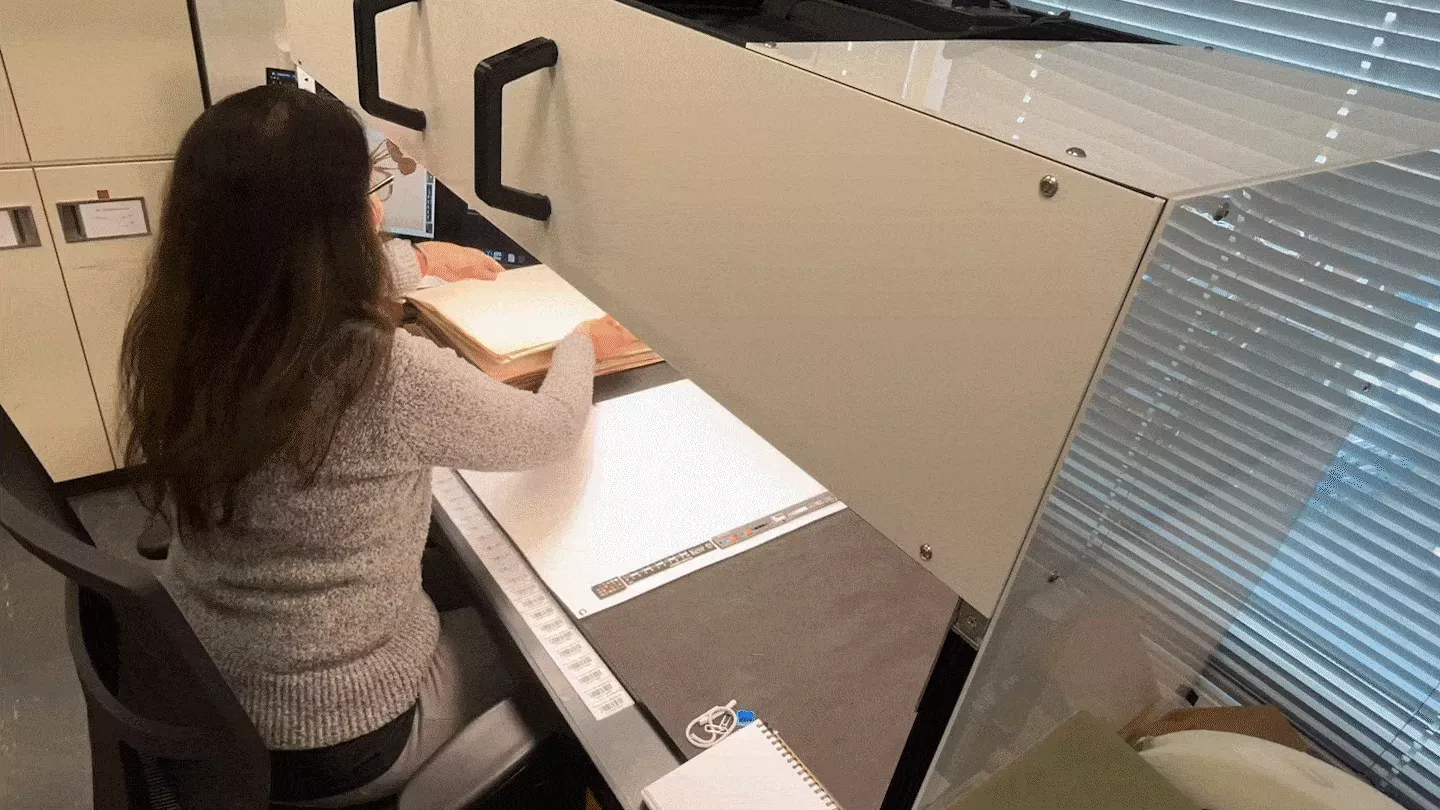
Rare and interesting specimens digitised
One millionth specimen – Allium ramosum
Nestled within our vast collection and the one millionth to be digitised, this extraordinary plant holds a wealth of botanical knowledge waiting to be unveiled. Commonly known as fragrant garlic or Chinese chives, the species is native to Central Asia and the far east of Russia.
With global warming threatening crops and our food security, digitising similar plant species could play a crucial role in understanding how we can use wild types to build resilience into our current crops so that future generations can enjoy the foods we eat today.
Collected by Charles Darwin
Collected on his pioneering expeditions to the Galápagos Islands, Charles Darwin's remarkable Phaseolus mollis Hook.f is now part of our digitised collection. Darwin's specimens have contributed to a deeper understanding of some plant’s evolutionary history, ecological relationships, and conservation needs within areas such as the unique Galápagos Islands ecosystem.
Preserving this invaluable botanical artifact digitally ensures its accessibility for future generations, advancing our knowledge of Darwin's scientific legacy and inspiring a greater understanding of how plant diversity has changed since the 19th century.


Uncovering hidden stories
Our dried specimens, which are stored in boxes in our Herbarium and Fungarium buildings, represent a treasure trove of information that can be used by scientists to build the tree of life.
However, until now, this hoard has been largely hidden from the world, as most specimens were only accessible if researchers were physically present at Kew.
That is why we embarked on this ambitious four-year initiative to digitise our entire collection, making specimen records and images freely accessible to international scientists and the public.
The project is also a reminder of the importance of preserving our natural heritage. The specimens in our collection represent a vast wealth of knowledge about the natural world that has been accumulated over centuries.
By digitising them, we are ensuring that this knowledge is not lost and can be passed on to future generations.

The wider picture: Uniting the world’s collections
A study in Science in 2023 demonstrated that across the world we have over 1.1 billion specimens ‘locked up’ in natural history museums and herbariums, with only 16% of these specimens digitally discoverable.
This is a major pinch point as these specimens can underpin important research. To overcome this, an ambitious end goal is to form a global online repository uniting the collections of all the world’s museums.
Such an initiative, albeit focusing on the UK’s collections, is already underway. The Distribution System of Science Collections UK (DiSSCo UK) – coordinated by the Natural History Museum, London, and supported by the Arts and Humanities Research Council – are leading a national programme of digitisation to help unlock this valuable resource to the world.
Our project will build on this approach to help form a global database that will accelerate research into global issues, helping protect our planet for future generations.
Help us digitise our prestigious collections
Get involved with these new opportunities
-
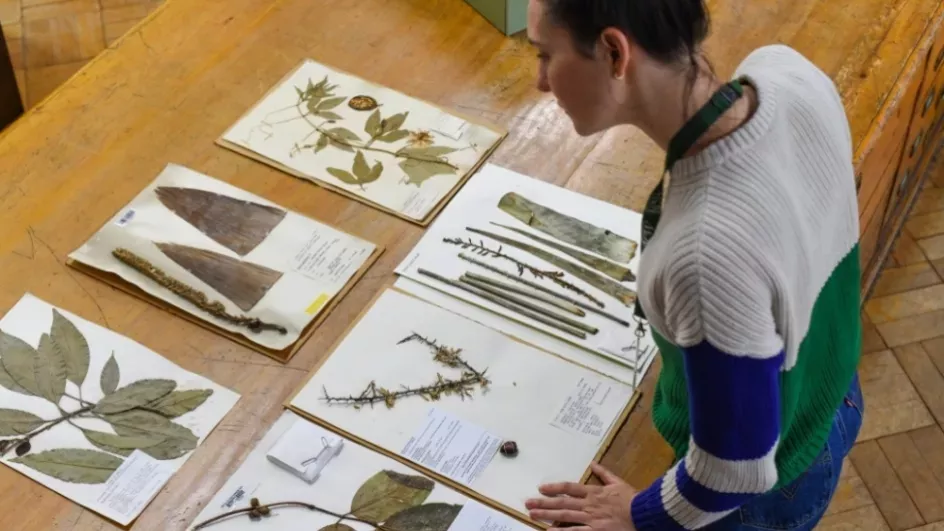
Volunteer
Become part of Kew's ambitious project and help make one of the largest collections in the world freely accessible to everyone around the world.
-

Donate
Donate today and immortalise a piece of botanic history that can aid research into urgent global challenges - helping protect our planet for future generations.
-
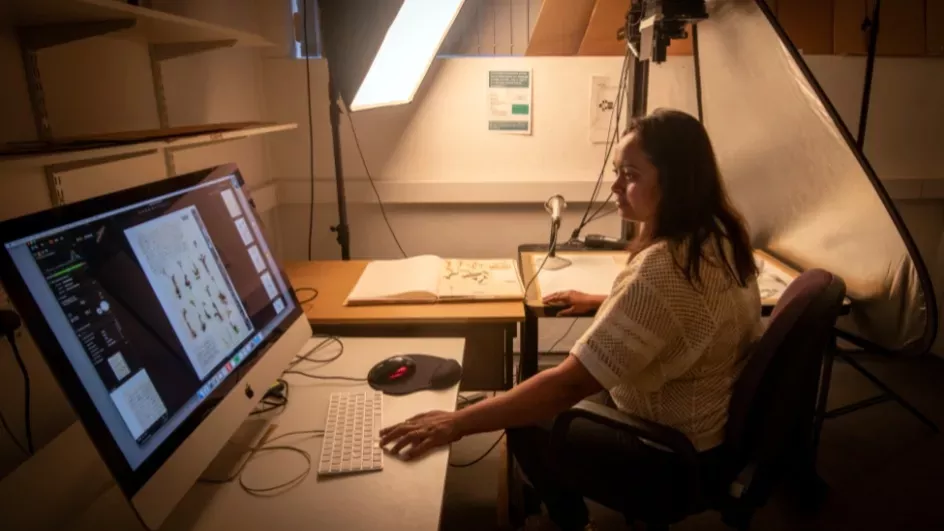
Work
See what job opportunities are available to digitise our collection and play a part in helping scientists across the world access our invaluable specimens.


